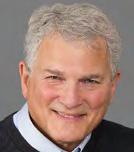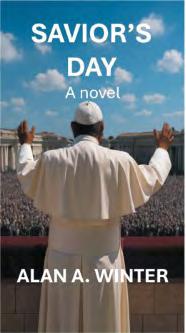
8 minute read
When Passion Intersects Clinical Practice, The Books Keep Coming
When Passion Intersects Clinical Practice, The Books Keep Coming
Many dentists pursue unique interests, hobbies, even “callings” during their active clinical years. They may be photographers, sculptors, painters, investors, athletes, entrepreneurs, or may volunteer for many meaningful endeavors. Most are hobbyists; some excel to a high degree. Dr. Herbert Ferber, for example, was an early pioneer in environmental sculptures while he practiced in Manhattan as Dr. Herbert Silvers.
Another accomplished New York City dentist—known for his clinical skills and photography—was the recently deceased Dr. Daniel Budasoff, who was a contributing photographer to the Mets, Yankees and various Latino sports. The arts and business ventures aside, how many dentists are known for writing fiction?
When it comes to dentists who write/wrote fiction while they continued to practice clinical dentistry, the most accomplished name that comes to mind is Zane Grey, author of “Riders of the Purple Sage.” Another is John Haase, who fled Nazi Germany with his family. His novel was turned into the movie “Petula.” Two other present-day dentists who are accomplished writers are Alaa al-Aswany and Gloria Chao.
Admittedly, the list of dentists who write and have published fiction is short, which is why when we heard that lifetime member Alan A. Winter, now a retired periodontist who practiced in Manhattan, is having his seventh novel published, we needed to learn more about the intersection of his dual passions for dentistry and writing fiction. Having known Dr. Winter as a writer, it occurred to us there was no better person to deliver a message about the intersection of a dental career with an avocation than the author himself. What follows is Dr. Winter interviewing Dr. Winter about how and when he became a novelist and the importance of following passions.
When did you first know you wanted to write fiction?
Writing fiction was never a goal of mine. While I was a history major in college, I wanted to be a dentist. That said, some part of me enjoyed writing; language has always been important to me. When I taught PG perio at Columbia for many years, the postgrads knew that when they presented a treatment plan to me for approval, their grammar and spelling had to be correct. I marked up their treatment plans with a red pencil, and all grammatical and spelling mistakes had to be corrected before I reviewed their proposed treatment. For me, being a professional extends beyond skill sets and clinical judgment; it includes knowing English and using it correctly.
My clinical writing was sharpened when I founded and became the first editor of Periodontal Case Reports, a journal published under the auspices of the Northeast Periodontal Society. In addition to clinical teaching, I taught two periodontal literature courses at Columbia and published more than 20 clinical papers.
Writing scientific articles and reviewing dental literature are not the same as writing fiction. How and when did that happen?
I started to practice with two well-known periodontists, Lenny Hirschfeld and Bernie Wasserman.
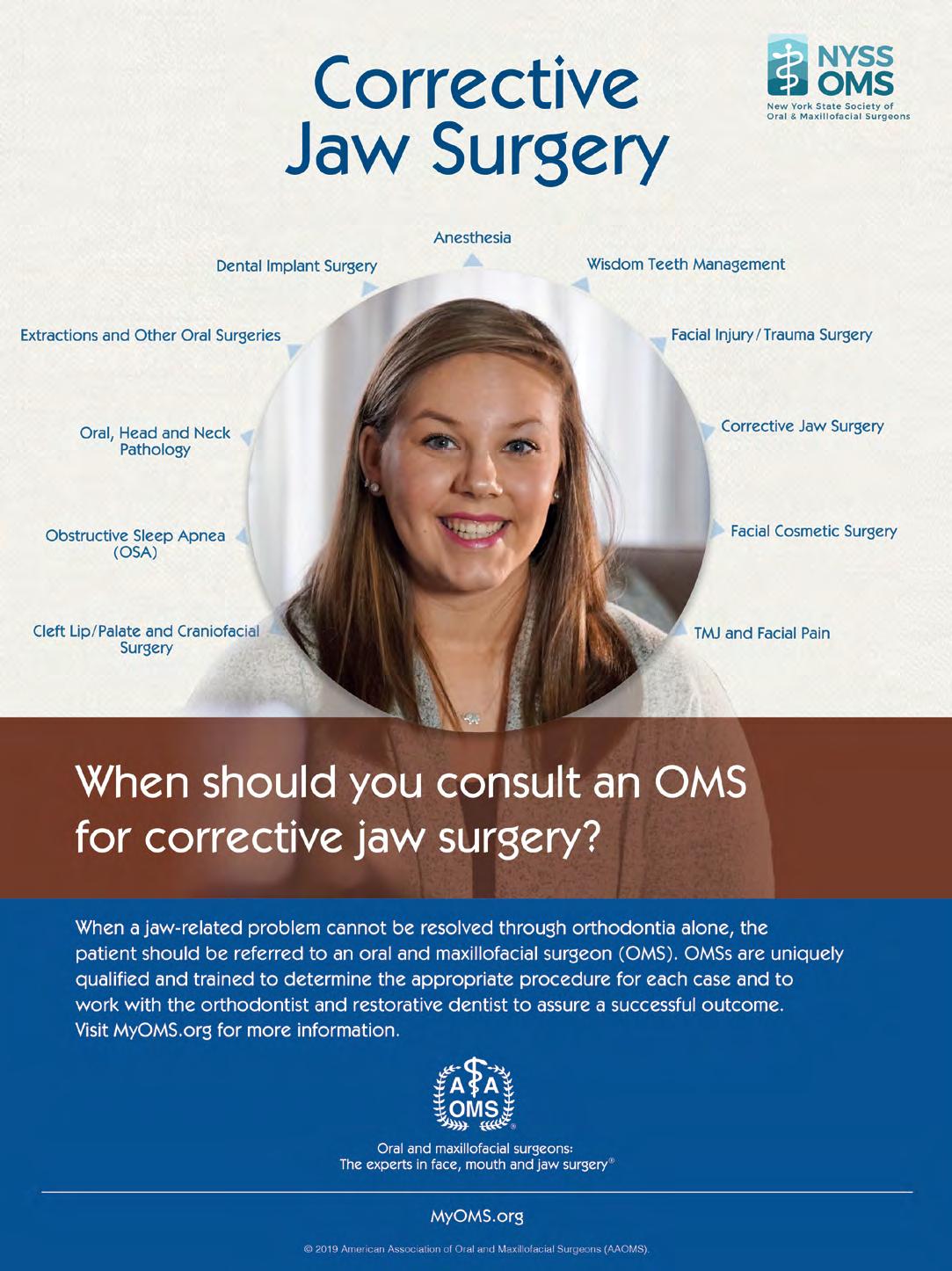
Their patients were concerned I did not look old enough to be a periodontist. Translation: Did I have the clinical experience to treat them? To show that I did, I placed photographs of my three sons on the operatory wall and said, if I was old enough to have three children, I was experienced enough to treat them. Of course that made no sense, but that was all I had. I couldn’t make myself look older.
As the weeks passed, patients asked why I had pictures of children on the wall. When I said they were my sons and that they were brothers, I was met with dismay. You see the boys did not look alike then or now, yet I knew they were my sons. Nevertheless, I became obsessed with one question: What if I did bring the wrong baby home from the hospital? I couldn’t stop thinking about it until one day, I decided to create a story about parents taking the wrong baby home. This was in the mid-1980s when this was pretty much unheard of. While I wrote to purge this story from me, I became hooked on the process of writing fiction. It took eight years, but in 1993, 20 years after I finished dental school, my first novel, “Someone Else’s Son,” was published. And I have been writing ever since.
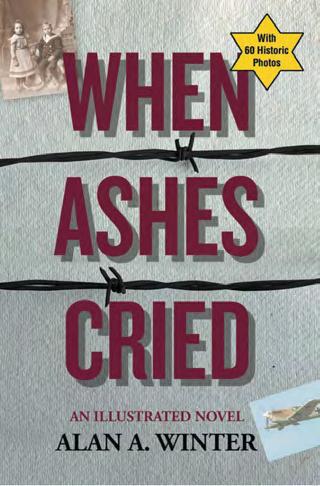
When did you find the time to write, and how many hours did you write each week when you practiced full-time?
I wrote every spare minute I could find, often late at night or early in the morning. I worked four days a week and taught the fifth. I commuted to New York City from New Jersey, so my workdays were long. That said, I managed to write roughly 30 hours a week. When people asked how I found time to write, I would say everyone has enough time to follow their passions. Besides, I don’t golf, ski or play tennis. They would take time away from writing.
Once you realized your passion for creative writing, did you take formal training?
Writing is a craft that can be learned. Imagination is gift that cannot be taught. When I understood this, I took a creative writing class at Columbia’s School of General Studies. It didn’t work for me because the course was cross-registered with undergraduates who I couldn’t relate to. I was 40 at the time. I dropped the course to do something better: I hired a private writing teacher who taught creative writing at Columbia, John Bowers. John and I met every Monday night in a coffee shop where I was not allowed to eat but only have coffee. He gave me a writing lesson each week for two years based chapters from my first manuscript. Each lesson was applied forward. So when we were done with the first pass-through, we repeated the process a second time. When we finished, John said the manuscript was “submittable.” I was fortunate to find a publisher.
Where do your stories come from and why do you write in the genre you do?
My last four novels are historical fiction, so I am applying my love of history to my passion for writing. Each of my books has the same goal: entertain the reader while teaching something they might not have known. While stories come from all sorts of places, I was fortunate that patients brought me stories. If they resonated, I pursued them. That happened with “Savior’s Day,” which was a Kirkus Reviews Best Book Selection and was recently reissued because it leaps from today’s headlines. I co-wrote two well-received books on the Holocaust with former federal judge Herbert J. Stern. And I recently completed the third book in that series, “When Ashes Cried,” which is unique because it is an illustrated novel with 60 historic photos.
What are you working on now?
I am working on an alternative history book. I can’t say anything else about it now.
What advice do you have for dentists who are passionate about something but feel they are too busy to pursue it while they practice dentistry or have family/other obligations?
I will answer that in two ways. First, don’t wait to follow your passions. It is so gratifying to follow a dream. When is it ever the right time to do anything extra? If your dream would benefit from additional training, seek it out. One of the great benefits of following this path, of pursuing a dream, is how much one’s life is enriched. That is priceless. But it can have an expiration date. So the right time to follow a passion is when you can’t stop thinking about or continue to make excuses why you are not pursuing it, no matter the reason.
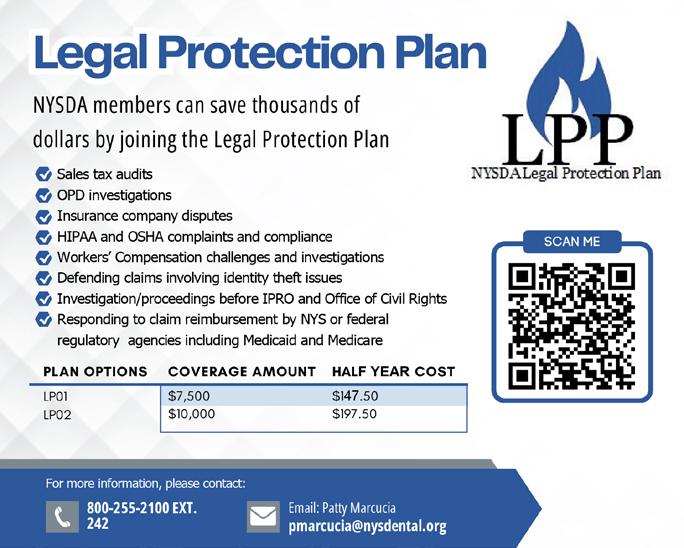
The second part of the answer is that I have heard individuals from all walks of life, dentists included, say, “I don’t know what I would do with myself if I retire.” That is another reason to explore a passion—if you are fortunate enough to have one. I recognize not everyone does, and that’s understandable. But if one does have other interests or thinks about finding a new one, consider how much better prepared you would be for retirement if you develop that interest while you are still in clinical practice.
I always had the capacity to follow many interests at the same time. I taught at both Columbia and NYU for many years, edited a journal, wrote articles, raised three sons, have grandchildren, traveled, lectured, was involved in organized dentistry and, yet, still had time to write and publish five novels before I retired. I urge my dental colleagues to experience the joys that come from pursuing a passion in their own way. There is no better time to start than now.
To learn more about Alan’s books, visit www.alanwinter.com
